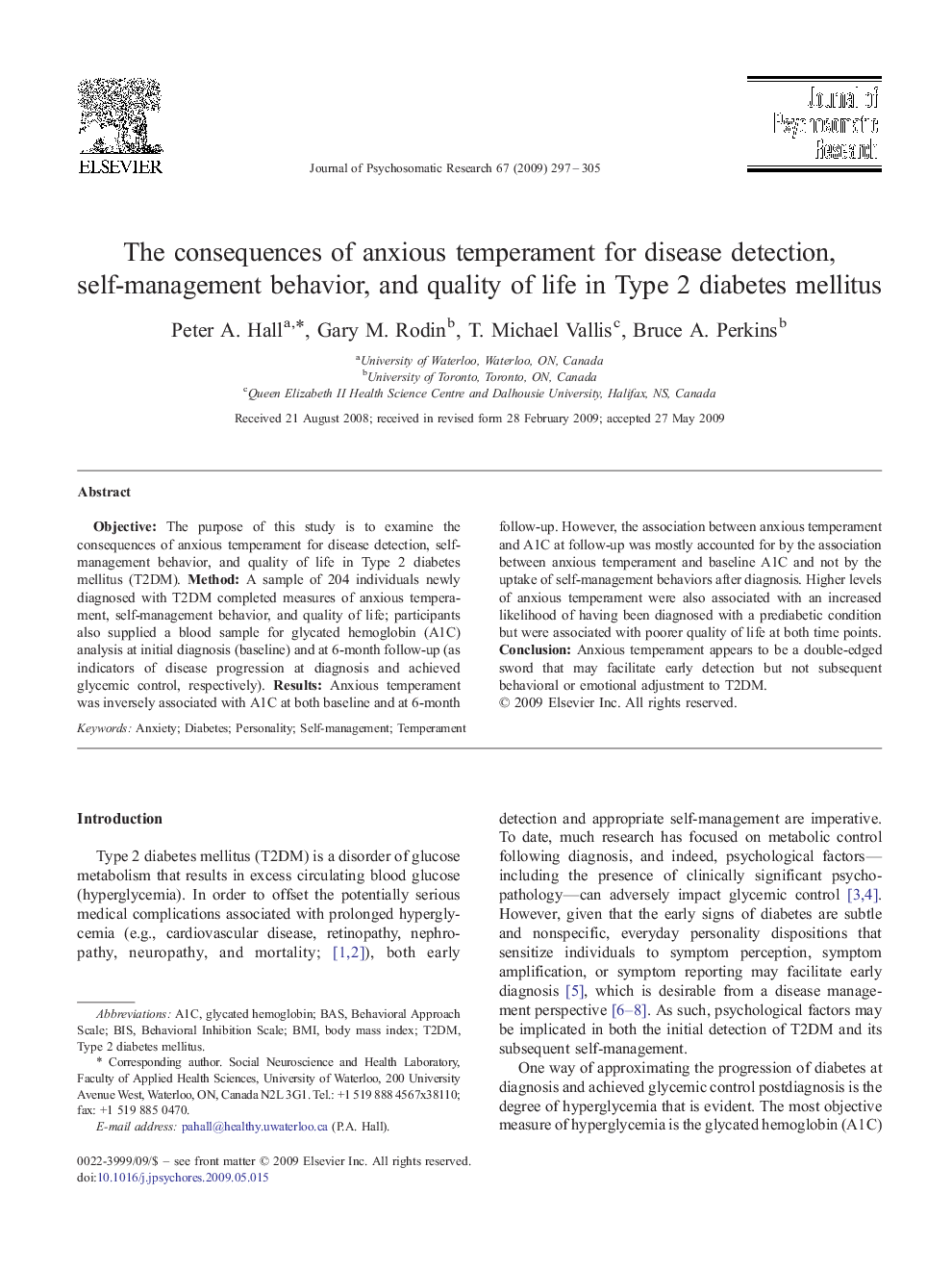| کد مقاله | کد نشریه | سال انتشار | مقاله انگلیسی | نسخه تمام متن |
|---|---|---|---|---|
| 950765 | 926840 | 2009 | 9 صفحه PDF | دانلود رایگان |

ObjectiveThe purpose of this study is to examine the consequences of anxious temperament for disease detection, self-management behavior, and quality of life in Type 2 diabetes mellitus (T2DM).MethodA sample of 204 individuals newly diagnosed with T2DM completed measures of anxious temperament, self-management behavior, and quality of life; participants also supplied a blood sample for glycated hemoglobin (A1C) analysis at initial diagnosis (baseline) and at 6-month follow-up (as indicators of disease progression at diagnosis and achieved glycemic control, respectively).ResultsAnxious temperament was inversely associated with A1C at both baseline and at 6-month follow-up. However, the association between anxious temperament and A1C at follow-up was mostly accounted for by the association between anxious temperament and baseline A1C and not by the uptake of self-management behaviors after diagnosis. Higher levels of anxious temperament were also associated with an increased likelihood of having been diagnosed with a prediabetic condition but were associated with poorer quality of life at both time points.ConclusionAnxious temperament appears to be a double-edged sword that may facilitate early detection but not subsequent behavioral or emotional adjustment to T2DM.
Journal: Journal of Psychosomatic Research - Volume 67, Issue 4, October 2009, Pages 297–305